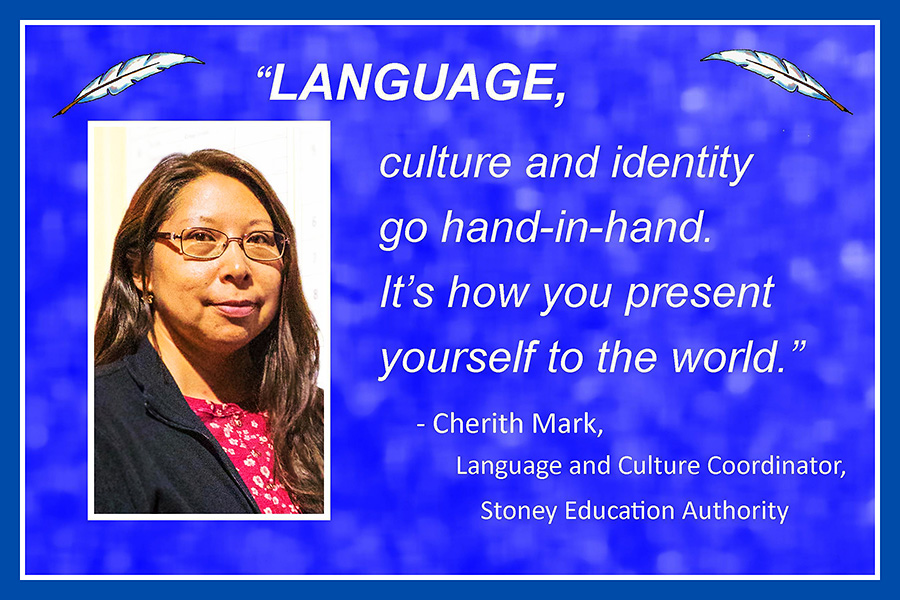
Thanks, Stoney, for reminderCOFFEE WITH WARREN, with Warren Harbeck |

|
This is my Thanksgiving column with a twist. And the twist comes from some exciting Stoney Nakoda language initiatives at Morley that are reminding me of something very important in my own heritage. So, just what is it that’s happening among Cochrane’s Stoney Nakoda First Nation neighbours that is so inspiring? In an age when so many Indigenous languages are in danger of extinction, the Stoney community is taking steps to defy the odds – and they’re doing it word by word, page by page, book by book in expanding from an oral-only tradition to an increasingly oral and written tradition. Let me begin by citing 14,002 examples that just came together last Friday with the completion of the 10-day Stoney Nakoda Rapid Word Collection Event at Morley – 14,002 Stoney Nakoda words covering every area of life imaginable, supplied by about 32 Stoney Nakoda speakers a day working in small groups with linguists. Held at the Stoney Nakoda Resort, this was a joint venture between the Stoney Education Authority and The Language Conservancy, a non-profit foundation committed to preserving endangered indigenous languages around the world. The resulting list is the property of the Stoney community. The purpose of the word-collection, according to the project’s on-site coordinator Cherith Mark (Language and Culture Coordinator for the Stoney Education Authority), was to develop resources in the Stoney Nakoda language for the children of the Nation, such as alphabet and picture books, text books and related heritage materials. “The Elders and community members who participated really appreciated the work being done and they thoroughly enjoyed themselves,” she says. The word-collection event is not the only language-affirming initiative in the community. In 2017 Stoney Nakoda Language Educator Duane Mark oversaw the production of the very popular online Stoney Nakoda Language App (see my column for June 21, 2018). Then there’s the encyclopedic dictionary currently in development by Morley Ph.D. candidate Trent Fox and a team of Elders, several of whom were involved in the development of the practical writing system for the language over 40 years ago. And just recently, five authors from Morley wrote books in Stoney funded by the Calgary Public Library and soon to be published. But why all this emphasis on promoting a traditionally oral language in writing? “Language, culture and identity go hand-in-hand,” Cherith Mark says. “It’s how you present yourself to the world.” And history shows that the written form serves that end very, very well. Which brings me around to why I’m personally grateful for the Stoney community’s example at this Thanksgiving time. English, too, was once only an oral language. But around 1,500 years ago, thanks to the influence of other written languages, the first recorded writings in Old English occurred. Then 300 years later, the Old English epic poem Beowulf was composed, and today, millions of books later, we are the heirs to the wisdom of our English elders down through the ages, wisdom that would have been long forgotten had it not been written down. So, thank you, Stoney Elders, educators and writers, for your vision, dedication and hard work. Your achievements are good reminders of the contributions of many over the centuries to my own rich linguistic heritage. Happy Thanksgiving!
© 2019 Warren Harbeck |